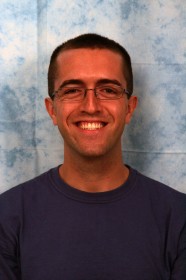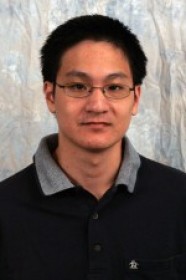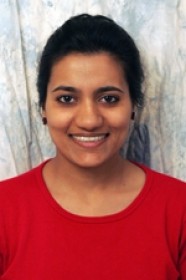Empathy in Virtual Agents and Robots
Event Location: 3305 Newell-Simon HallBio: Professor Ana Paiva is a research group leader at INESC-ID and an Associate Professor at Instituto Superior Técnico, Technical University of Lisbon. She is well known in the area of Virtual Agents, Artificial Intelligence Applied to Education and Affective Computing. After her PhD in the UK (University of Lancaster), she [...]
Understanding Scenes With Superpixels and Object Detectors
Event Location: NSH 3305Bio: Svetlana Lazebnik received her Ph.D. in 2006 at the University of Illinois at Urbana-Champaign. From 2007 to 2012, she was an assistant professor of computer science at the University of North Carolina at Chapel Hill. As of January 2012, she has moved back to UIUC as an assistant professor. She is [...]
Grounding Natural Language in Robot Control Systems
Event Location: NSH 1305Bio: Dieter Fox is an Associate Professor in the Department of Computer Science & Engineering at the University of Washington, where he heads the UW Robotics and State Estimation Lab. From 2009 to 2011, he was also Director of the Intel Research Labs Seattle. He currently serves as the academic PI of [...]
Capturing Light: The History of Imaging
Event Location: NSH 1305Bio: Roger Cicala received his M. D. in 1986. He spent 12 years (not all in a row) as Associate Professor of Medicine at the University of Tennessee. In the interim he practiced medicine, worked in pharmaceutical research, and for the Drug Enforcement Agency. In 2005 he left medicine to make a [...]
2012 National Robotics Week Celebration
Event Location: Carnegie Mellon Main CampusAbstract: The Robotics Institute will celebrate the third annual National Robotics Week on April 20 with project demonstrations, lab tours, the annual Mobot (mobile robot) races, a special lecture by Professor Howie Choset and a Robot reception. Pre-registration is required for our National Robotics Week events. Please pre-register by clicking [...]
Complementary Flyover and Rover Sensing for Modeling of Planetary Features
Event Location: GHC2109Bio: Heather Jones is a PhD student at the Robotics Institute. Before coming to Carnegie Mellon, she earned bachelors degrees in engineering and computer science from Swarthmore College and worked for nearly three years at NASA's Johnson Space Center. Abstract: This talk presents complementary flyover and surface exploration for reconnaissance of planetary point [...]
Augmenting Cartographic Resources and Assessing Roadway State for Vehicle Navigation
Event Location: NSH 1507Abstract: Maps are important for both human and robot navigation. Given a route, driving assistance systems consult maps to guide human drivers to their destinations. Similarly, topological maps of a road network provide a robotic vehicle with information about where it can drive and what driving behaviors it should use. Maps simplify [...]
State Estimation from Visual-Inertial Data in Unstructured Environments
Event Location: GHC2109Bio: Andrew Chambers is a Masters student at the Robotics Institute, advised by Sanjiv Singh. He holds a B.S. in Electrical Engineering from the University of Southern California. Before coming to the RI, he worked as an electrical engineer at iRobot in Boston, MA, where he designed hardware for the bomb disposal robots.Abstract: [...]
Lumenhancement: Exploiting Appearance for Planetary Modeling
Event Location: NSH 1109Abstract: Planetary environments are among the most hazardous, remote and uncharted in the solar system. They are also critical to the search for life, human exploration, resource extraction, infrastructure and science. These applications represent the prime unexploited opportunity for automated modeling, but robots are under-utilized for this purpose. There is urgent need [...]
Attention-guided Algorithms to Retarget and Augment Animations, Stills, and Videos
Event Location: GHC 4301Abstract: Still pictures, animations and videos are used by artists to tell stories visually. Computer graphics algorithms create visual stories too, either automatically, or by assisting artists. Why is it so hard to build algorithms that can manipulate the content created by a visual artist? A primary reason is that artists introspect [...]









